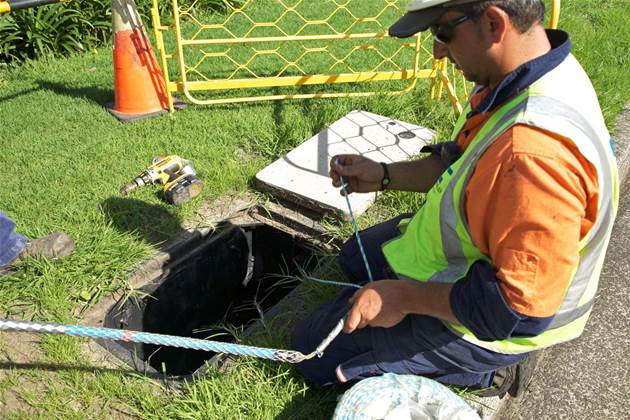NBN Co has resumed working with one construction company and renewed negotiations with five others for the build of the National Broadband Network.

The Government-owned wholesale telco had suspended all construction on second release sites in April after accusing suppliers of attempting to fleece the taxpayer in their bids.
Today NBN Co said it would form a panel of construction companies by August that would be responsible for passing up to a million homes with fibre-to-the-premises (FTTP) technology by mid-2013.
Silcar has signed on as the first contractor for construction of the network after eight weeks of “intense” negotiations between the companies, according to NBN Co head of corporate services Kevin Brown.
The company, which built the first release Armidale site switched on last month, signed an initial contract worth $380 million over two years, with a possible two-year extension.
With the extension, the company could earn a total of $1.12 billion over four years.
Silcar - a joint venture between Thiess and Siemens, would be responsible for construction in Queensland, New South Wales and the ACT, covering nine of the 19 second release sites announced by the NBN wholesaler, and additional properties amounting to 40 percent of the mainland construction phase over the two years.
It has been contracted to build 130 of the 350 fibre serving area nodes NBN Co hopes to roll out over the next two years, each capable of serving 3000 premises.
Silcar chief executive Peter Lamell said the company would use Telstra infrastructure where possible during construction but would otherwise rely on horizontal boring or vacuum excavation where existing ducts were not available.
NBN Co has continued negotiations with a further five companies, some of which would be chosen to build the network in other states, as well doubling up commitments in each of the capital cities.
NBN Co has continued negotiations with a further five companies, some of which would be chosen to build the network in other states, as well doubling up commitments in each of the capital cities.
NBN Co's acting head of construction, Dan Fleming, confirmed all six of the companies under negotiations were among the 14 initial bidders.
A decision on further contractors is expected by August.
“If you look at the major capital cities in some of the large east coast regions, one contractor working in those regions just won’t get the work done,” Fleming told iTnews. “Once we’ve got presence anywhere, we’ll add to those areas.”
Future contracts would likely follow a similar template to the Silcar agreement, with an initial two-year agreement and two-year extension.
Under the new agreement, Brown said the wholesaler would still be on track to meet its target of a $10-12 billion construction cost for the fibre portion of the $36 billion project.
Fleming said the level of detail involved in the negotiations protracted initial timelines.
“We worked through more detail than we thought we would, which is good, which is why we ended up with the 350 pages [in the contract],” he said.
Fleming took on the head construction role after predecessor Patrick Flannigan departed, a few days after the tender suspension on April 1. Fleming denied that Flannigan’s departure had slowed the process.
Lamell said Silcar would look to build on its existing 2500 workforce with further resources from joint-parent company Theiss as well as other subcontractors. However, he refused to say how many workers would be necessary to meet the construction company’s contractual commitments during the first two years.
Fleming said NBN Co had engaged with construction companies in a way that ensured skills would be available.
“In the first two years we’re not intending to over-commit contractors in a particular region and have that competitive issue around the resource,” he said.


_(20).jpg&h=140&w=231&c=1&s=0)
.png&h=140&w=231&c=1&s=0)
_(33).jpg&h=140&w=231&c=1&s=0)
_(23).jpg&h=140&w=231&c=1&s=0)





 Cyber Resilience Summit
Cyber Resilience Summit
 iTnews Executive Retreat - Security Leaders Edition
iTnews Executive Retreat - Security Leaders Edition
 Huntress + Eftsure Virtual Event -Fighting A New Frontier of Cyber-Fraud: How Leaders Can Work Together
Huntress + Eftsure Virtual Event -Fighting A New Frontier of Cyber-Fraud: How Leaders Can Work Together
 iTnews Cloud Covered Breakfast Summit
iTnews Cloud Covered Breakfast Summit
 Melbourne Cloud & Datacenter Convention 2026
Melbourne Cloud & Datacenter Convention 2026












_(1).jpg&h=140&w=231&c=1&s=0)



